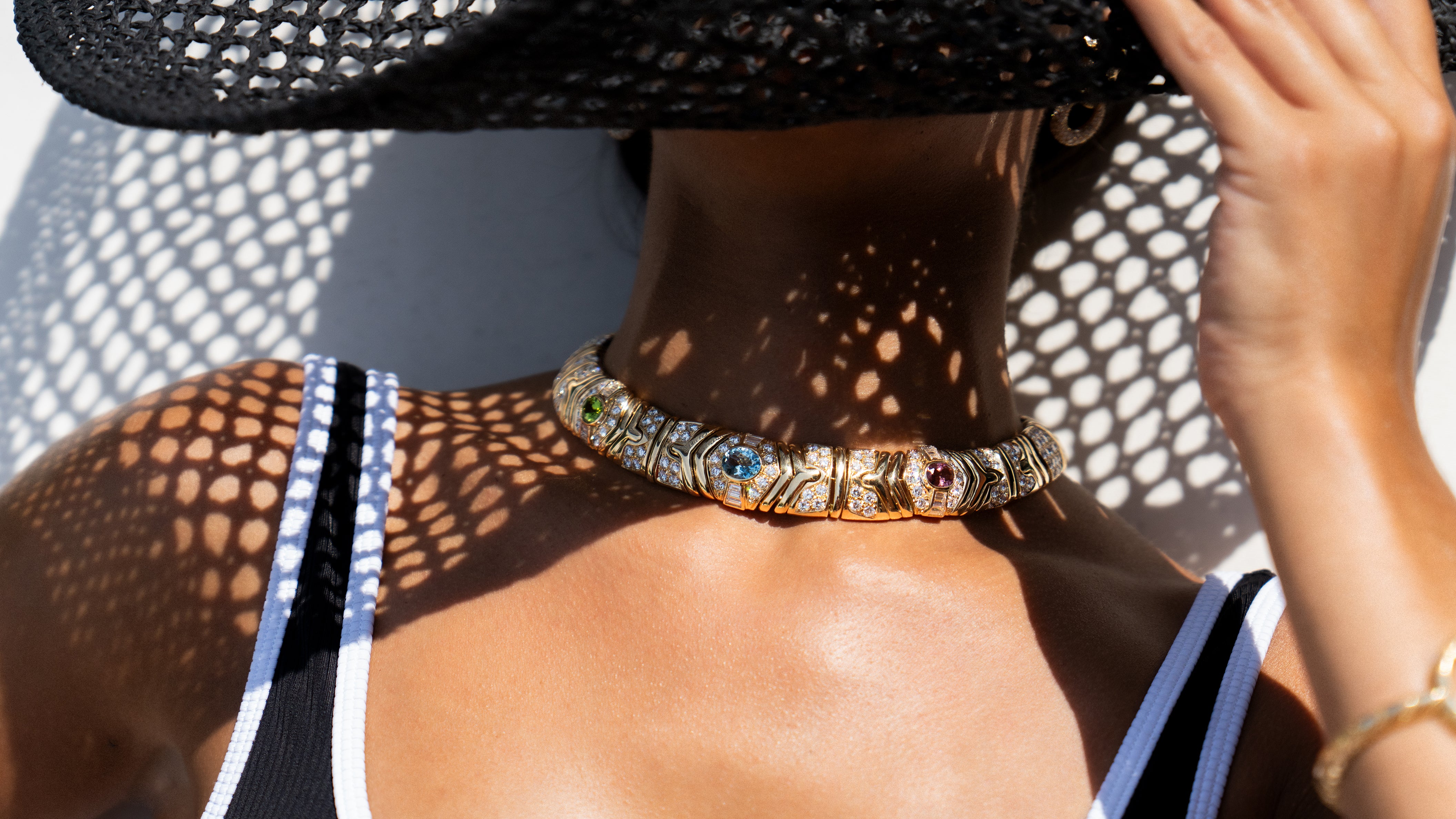Jabel
A jewelry manufacturer with the innovation and drive to succeed, J.J. Abelson created a stellar jewelry company with a legacy that continues to this day.
The Founder
J.J. Abelson trained as a setter of fine jewelry at Jones & Woodland (which was later acquired by Krementz & Co.). In 1916, he founded his own company in Newark, New Jersey. In the early 20th Century, Newark was a respected and vibrant center of jewelry manufacturing.
The Jabel Ring Manufacturing Company
J.J. Abelson named his company Jabel, combining his initial with the first portion of his last name. Abelson was an innovator who led his company until the day he died on December 26, 1977. The business remained in the family, with this son-in-law, Alan Herman, daughter, June Abelson Herman, and grandson, Daniel Herman, at the helm. The company expanded to Irving, New Jersey. Jabel is still in operation today, offering quality rings, bridal jewelry, necklaces, bracelets, and earrings.
The key to Jabel’s success is the entire process of jewelry manufacturing, which takes place right in their facility. From alloying the gold to assembling by hand to setting to finishing and polishing -- all are managed in-house. They fabricate their own steel tools that are used for die-striking.

What is Die Striking?
A process of jewelry manufacturing, die striking is the method that creates the majority of Jabel components. The result is a product that possesses a much higher density and durability than casted jewelry. Casting is the most common method for creating jewelry and uses low-pressure molds.
The secret to the Jabel method is pressure. A bar of alloyed platinum or gold is rolled under heavy pressure to form a solid metal ribbon that is uniformly strong and of the desired thickness. Pieces are then blanked out by dies and put through other operations to apply pressure (“striking”) as well as “annealing” (heat treatment). This unique process creates gold that is dense but malleable. It is a method that has been successful for generations…one that creates high, heirloom-quality jewelry that lasts for many lifetimes.
Alloys
Jabel was among the first manufacturers to make white gold using a mixture comprised of 15% Palladium. The result is a bright, clean look in white gold. Platinum used by Jabel is 95%, alloyed with 5% Ruthenium, creating an outstanding metal that is prized for its hardness and its resistance to wear.

Jabel Style
Like their contemporaries, Jabel followed the trends of the times. The Art Deco period was well represented with diamond rings that carried an impressive number of diamonds in stunning Deco settings. While the emphasis was on diamonds, there were occasions when sapphires, emeralds, or rubies were added to bring color to a particular piece.
Jabel excelled as a ring manufacturer, with a specialty in bridal jewelry. Later, the company would expand its assortment to include necklaces, bracelets, and earrings, while continuing to uphold its reputation as a bridal jeweler whose rings endure for generations.

Rose themes were a popular motif of the Jabel establishment. Carved in yellow, rose and white gold, the floral beauties made excellent wedding bands to accompany one of their timeless diamond engagement rings.
The demand for platinum in the military necessitated the shift to gold, as it did for the whole industry during World War II. So it was that Jabel designs became more prevalent in 18K yellow or white gold, although their style remained unmistakable. The die striking process ensured each of their designs would be an heirloom-quality piece. Elaborate and exquisite, it was the band as much as the beautiful diamonds that caught the eye.

“At Jabel, we do not make compromises.”
Because Jabel does their own manufacturing, they have put much emphasis on the handcrafted aspect of their engagement ring settings. Each is hand-finished to create a timeless look. This position is nothing new – Jabel has a history of adapting their rings to the wishes of their clientele.
Trends come and go, but the quality of Jabel jewelry has remained unchanged. Their die-striking process is a tried and true element that ensures the success of their business, making their designs desirable today and, presumably, for many years to come.
